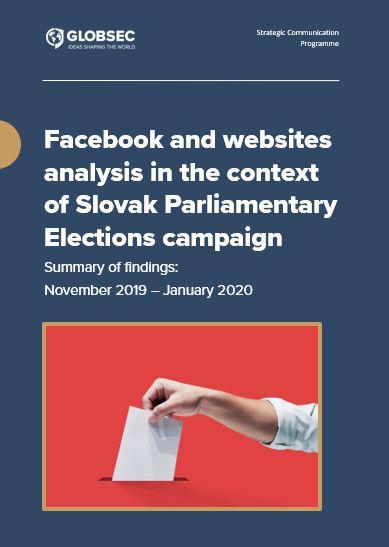Publication
Facebook and website analysis in the context of Slovak parliamentary elections campaign

Team of Strategic Communication at GLOBSEC carried out monitoring of social media and websites during the Slovak parliamentary election campaign. Here are the main findings from the second phase of the monitoring:
KEY FINDINGS
- In the monitoring period, the highest total impact among the monitored content had articles published by standard news websites and portals, with 45% of all interactions. It means that mainstream sources of information still had slight prevalence over sources from the problematic site of the information spectrum in online space.
- Alarmist, polarising or hateful narratives (often challenging basic principles of democracy in the context of the upcoming parliamentary elections) were identified among the problematic sources, while standard news portals and their Facebook pages remained to a great extent neutral.
- Narratives challenging the values of liberal democracy and liberalism itself were again the most dominant among the monitored narratives, similarly to the Slovak presidential elections in 2019.
- The political party Vlasť (Nation) was the most positively portrayed party on open groups on Facebook with problematic content. However, the proportion of the ĽSNS party’s positive mentions, which was the second most-often referred to, increased significantly compared to the first monitoring period, from 28% (October to mid-November) to 45% of all positive mentions by the end of the second monitoring period in January 2020.
- The ĽSNS party is the most-often mentioned party on webpages and Facebook pages with problematic content. On mainstream pages, the most often referred to party was SMER-SD, in line with current pre-election public opinion poll surveys.
- Facebook pages of the mainstream news portals were to a great extent neutral with respect to political parties, as 95% of all posts did not contain any sentiment toward them.
- Problematic pages on Facebook had 53% of posts neutral towards political parties.

